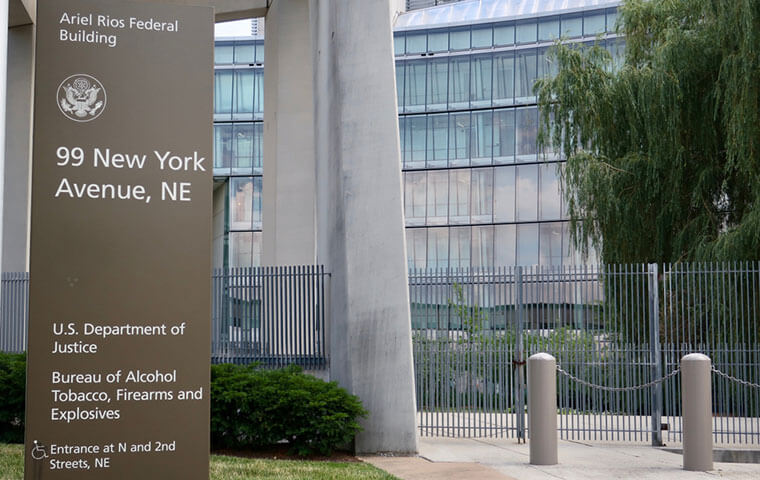 Over 100 employees were found to be in non-law-enforcement positions and receiving law enforcement availability pay and enhanced retirement benefits. Image: DCStockPhotography/Shutterstock.com
By: FEDweek Staff
Over 100 employees were found to be in non-law-enforcement positions and receiving law enforcement availability pay and enhanced retirement benefits. Image: DCStockPhotography/Shutterstock.com
By: FEDweek StaffAn investigation has confirmed that the Bureau of Alcohol, Tobacco, Firearms and Explosives “intentionally” misclassified some higher-level positions as involving law enforcement duties to boost the pay and later retirement benefits of employees in them, even though the jobs did not involve those responsibilities, the Office of Special Counsel has said.
In a letter to the White House and the Congress, the OSC said that the ATF overpaid by nearly $20 million in the affected positions over 2016-2021. “That cost could be much higher given that the unlawful job classifications had been common practice at ATF far longer than the five-year timeframe reviewed by investigators,” it said.
After receiving disclosures on the issue from two whistleblowers, the OSC sought an investigation by the ATF, although the matter became part of an audit of that agency being conducted by the OPM. The OPM concluded that ATF leadership “had acted outside of merit system principles and demonstrated disregard for the rule of law and regulations that implement federal human capital management policies and practices,” the OSC letter said.
In total, 108 employees were found to be in non-law-enforcement positions—including in roles such as HR—who were improperly provided law enforcement availability pay and enhanced retirement benefits, it said. (That “availability pay” is a 25 percent add-on that takes the place of overtime for law enforcement positions such as criminal investigators who are expected to regularly work beyond a 40-hour week.) Of those, 36 have since been reassigned and 14 have retired.
OPM suspended ATF’s authority to classify federal law enforcement positions and ATF has begun the process of updating position descriptions to accurately reflect job duties, it added.
Special Counsel Henry Kerner said in a statement that “While I find the report to be reasonable, progress toward full resolution has been slow, which may be attributable to the long-standing nature of the problems and the entrenched culture reinforcing ATF’s practices. I am pleased that OPM continues to monitor progress in implementing required corrective actions, and I urge ATF’s internal affairs to hold the responsible parties accountable.”
Deferred Resignation Periods about to End for Many; Overall 12% Drop
Retirement Surge Likely as Deferred Resignation Periods End
Senate Rejects Bills to Defer Shutdown; Familiar Process Lies Just Ahead
Senate Bill Would Override Trump Orders against Unions
Report Describes Impact of Shutdown on Employees, Agencies
TSP Adds Detail to Upcoming Roth Conversion Feature
See also,
How to Handle Taxes Owed on TSP Roth Conversions? Use a Ladder
The Best Ages for Federal Employees to Retire
Best States to Retire for Federal Retirees: 2025

